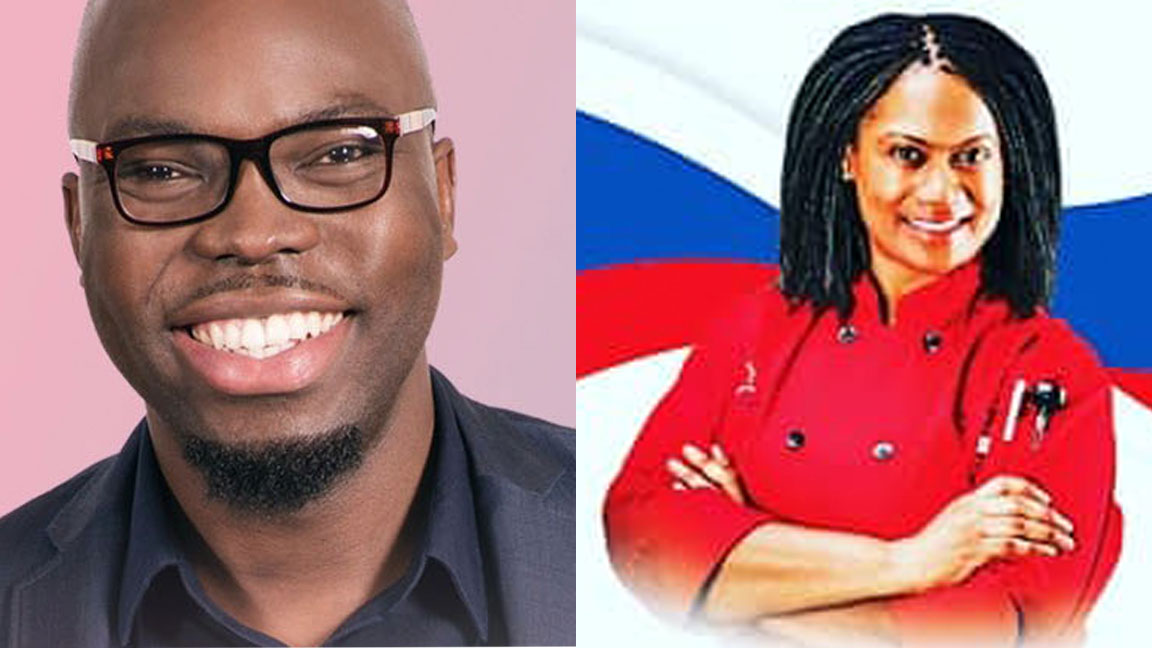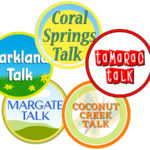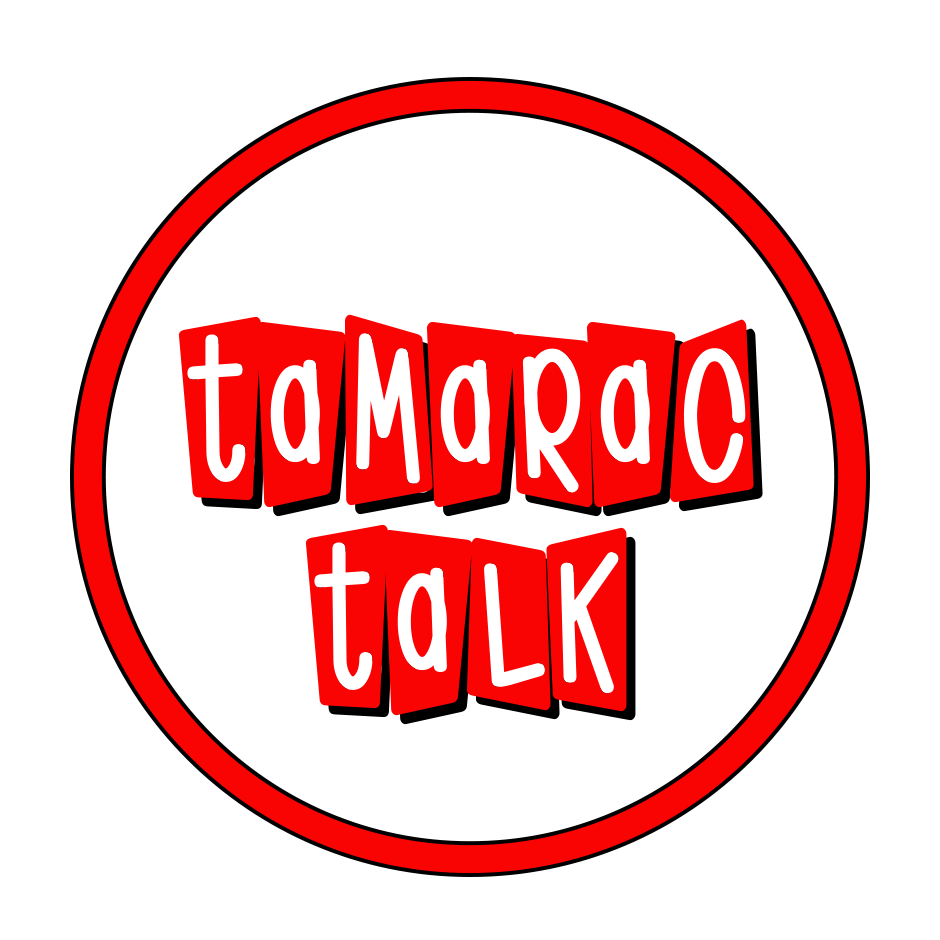
Commissioner Marlon Bolton and Michelle Jones.
By Selene Raj
Elections are underway in Tamarac as residents are already receiving their mail-in ballots. In the District 1 race, incumbent Vice Mayor Bolton is facing challenger Chef Michelle Jones.
Bolton, first elected in 2016, won against an eight-year-incumbent to become the first Black elected official to the city commission. In 2019, he was appointed vice mayor. In his first term, his focus areas have ranged from mandating baby-changing tables in men’s bathrooms and working on a multicultural festival to advocating for improved infrastructure in East Tamarac and renovating Caporella Park. He hopes to oversee those projects in his second term, as well as work on new ones, such as a living wage ordinance. To date, he has raised $78,984 in campaign contributions.
Jones, a psychology rehabilitation consultant, and a chef, has lived in Tamarac for two decades. Prior to running, she has been involved in the community both as a chef and an advocate—ranging from teaching cooking classes to kids to serving on the Diversity Board. Her focus areas include creating more affordable housing for senior citizens, a better water delivery system, and more promotion for local small businesses. She hopes to bring her affinity for service as a commissioner and to bring unity to the dais. To date, she has raised $13,077 in campaign contributions.
Tamarac Talk caught up with the candidates and asked them about their proposed policies, priorities, and why they believe they are the best candidates for the job. We asked that their answers were concise. They are listed in order of their last names.
Why are you running for office?
Bolton: I’m running for reelection to continue the work that I started. I won against an eight-year incumbent who did not advocate for everyone in my district. When I got there, there were projects for other districts, and there were none for Tamarac District 1. So, I rolled up my sleeves, and I got to work. I started to advocate for infrastructure projects, beautification projects, advocated for facilities on the Eastside, and I was largely successful with advocating for those things. So, now that they are identified in the budget, they’re happening, I want to remain in my seat to oversee the projects that I proposed, and I want to remain commissioner to propose new ones that will affect positive change in the community.
Jones: I’m running for office because I see the city that I’ve loved for almost two decades is not going in the direction when it comes to our community leaders. And, that’s not something that I want for the city because I’ve invested here, and I love the city, and so I want to make sure that the people of Tamarac, in District 1, to get some hope back, because people have lost hope. They’ve lost hope in our community, they’ve lost hope in our government, and so, I’m running because I truly, with every beat of my heart, want to bring the hope back to the people of Tamarac in District 1.
Marlon, what policies or ordinances have you voted on to help improve Tamarac residents’ lives in your district and in the entire city?
Bolton: Ordinances—number one, the baby-changing tables in men’s bathrooms, that one I love, absolutely, because men are now able to change their babies. Lots of women wanted the help from their husbands, or lots of couples want help from their partners, and one could not help the other because they had the challenge of the baby-changing station being in the female bathroom. This was important to me to happen because it really positively affects the quality of life for Tamarac residents. There is also an ordinance that I co-championed with Commissioner Gelin, for the small business preference programs, giving small businesses and minority-owned businesses, including women-owned and veteran-owned businesses, a better shot at city contracts and winning bids for the city. Finally, I’m also now working on a living wage ordinance, which is my new baby. It’s on an upcoming agenda which would provide a living wage for Tamarac employees and any resident of the city of Tamarac who becomes an employee of the city.
Michelle, what policies do you plan to introduce to help improve Tamarac residents’ lives in your district and in the entire city?
Jones: One of the policies that I can tell you, that I’m definitely going to do, is to be more connected with the people in my district—to continuously be connected to the people, and to educate them, and examine how the city is run. From knocking doors, what I’ve realized is, they are not connected as community leaders, and they really don’t understand how things are run. They have no idea. All they see is pictures, and they feel like they never get a chance to do things, and they don’t know their commissioners. So, what I’m going to do is to make sure that I’m connected with the people of Tamarac.
What local organizations are you a part of, and what committees do you sit on?
Bolton: I’m a board member for the Broward County Community Action Agency. I’m a board member for the Aviation Advisory Fort Lauderdale Executive Airport. I was just appointed to the Affordable Housing Committee by my colleagues. I’m a member of the National Black Caucus of Local and Elected Officials. I’m a member of the Broward League of Cities Youth Leadership Committee. I’m a member of the Florida League of Cities Municipal Administration Committee and a member of the National League of Cities Public Safety and Crime Prevention Committee, and I’ve worked as a volunteer for a couple of organizations, but I think I gave you an exhausting list.
Jones: I have served on the Diversity Board; this is my third consecutive year. I sit on the Human Rights Board, I think this is going on my fourth year, and I sit on the Keiser University Psychology Board of the Alumni. Organizations that I support: I am a big supporter of the Boys & Girls Club. I’m also a big supporter of Girls to Women. There’s a quite a few more—offhand right now; I can’t even think of some of them. The ones I worked with are the ones I’ve recently [worked with]—cause recently, I’ve been really bad with supporting the community cause I’ve been running. But the Boys and Girls Club is always my favorite. Girls to Women. Lighthouse for the Blind. I work with the Department of Education. I do work with people with disabilities. I am also part of the International Disability Association for people with learning disabilities sit on the diversity board, but I’ve been a mentor there for the past three years. I’ve been a part of so many organizations; I can’t remember the rest of them. And those are people I actually give my time to—not just drop something off, but go there and work, cook food, and do things for them.
Given what is going on nationwide, and what happened here in Tamarac, what policies do you plan to enact to protect citizens from abuse by police officers?
Bolton: I asked for a public safety committee, wherein that committee you would essentially review matters of public safety—review the contracts that we have with BSO and would be a direct liaison between the city and any other BSO board. Sheriff Tony suggested a citizens’ review committee and various other committees, and so our committee in the city of Tamarac would be direct liaisons between Broward Sheriff’s Office and their committees. We just finished a review of the use-of-force policy for BSO and went through their entire contract before renewing their contract with the city. I want to make sure that our citizens are taken care of by reviewing who the BSO officers are—we have exactly 101 BSO employees, so I have already requested information on them—who they are, if they’re a diverse group or not, I’ve requested all of their files, if they have any issues personal or internal. I’m also making sure that I meet with the hiring officer for BSO to make sure that new officers are assigned to Tamarac that are not problem officers. Also, making sure that the transition period between losing a BSO employee and getting a new one is five days, with the city manager reviewing who that is. I requested and was successful lowering the transition period—so, if we no longer require BSO services, if there is an uproar like what happened with the other parts of the country with George Floyd and Breonna Taylor, and we no longer require services from BSO, the transition period which we terminate their agreement is no longer two years, but would now be one year. We would have the ability to discipline them from our perspective. Because we are a BSO contract city, we don’t have oversight with disciplining officers, but if we were to transition to our own police department, we would be able to. Finally, I appreciate BSO and the work that they do. I’ve always said that publicly, that I appreciate them, so no change is needed right now, but at least the safeguards that I’ve just mentioned is in place if anything odd happens.
Jones: Well, I’ve been, there’s another organization I’ve worked with. In the past, we’ve had the mentor programs. The mentor program that we’ve had is a program where the police officers get to mentor to— I’m also a part of Lauderhill and Lakes Middle, Lauderhill Middle. We’re going to be having a meeting tomorrow. I sit on the diversity board, but I’ve been a mentor there for the past three years at Parkway Middle. What we have at Parkway Middle is the same thing I want here in Tamarac. We want to get these police officers involved, so I want to continue the mentor program and also continue the programs that are already set in place. We have Coffee with a Cop; we have Ride a Bike with A Cop. I think what it is is cultural differences, and one of the things that we have to learn to do—we have to learn to respect each other’s cultures, whether we care for how people dress or care for how people look and what color they wear their hair—we have to learn to respect people’s cultures. And I think it’s the cultural differences of people, that’s why people are prejudice. I mean, people are prejudiced against me, number one, just because I have a learning disability, and I think differently. I’ve always been bullied in school for that. But I’m brilliant, I’m very smart, and I don’t learn the same way. And I think it’s just understanding each others’ differences and really getting into the community and getting the network of connecting people with the city officials. I think the commissioners in our city should have totally done that in the past decade. I think it’s not something that was done, and I think they did not utilize the services that was already in place. And I know that, because I serve on the Broward School Diversity Board—I know a lot of things that goes in the school system, and I see the differences when it comes to culture. I’ve seen all these schools; I’ve gone to all of them, I visit them—I’ve seen how we can also make these schools better for our children, all children.
Marlon, with around 24 percent of Tamarac’s population Hispanic, what kind of outreach efforts and programs have you introduced to engage the Hispanic community in Tamarac?
Bolton: First and foremost, I created One Tamarac Multicultural Festival, which was my idea, with the help of my colleagues. One Tamarac Multicultural Festival celebrates Tamarac’s rich diversity—Hispanics, African-Americans, the LGBTQ+ community, people from all experiences, and people from all walks of life, so to speak. That’s one festival that I created that impacted the Hispanic community positively. The second thing I did, just the other day, was suggesting a diversity board—I have been working on it for a very long time. I have brought forward a diversity board that will help the city understand our growing Hispanic population. I will also direct the city manager to hire Spanish-speaking receptionists, so our workforce has to look like the community. If a Hispanic resident calls, they should not have a problem speaking to somebody or understanding somebody that answers the phone. I’m going to make sure that we have bilingual personnel that will be able to cater to our residents. I will work with the human resources department to put bilingual-preferred on all job requirements.
Michelle, what kind of programs do you plan to introduce to celebrate and recognize the contributions of the Hispanic community?
Jones: I think one of the things that we’re doing wrong in the community, whether it’s the Spanish, the Jamaicans, the Haitians, the Americans, the Jews, the Italians—I think one of the things we’re doing wrong is we continue to keep wanting to do different things for different communities—No, why? If we’re fighting so much about uniting, then why are we continuously dividing? Why can’t we all celebrate one culture? One in all states? Every culture in one place—every single culture—Haitians, Jamaicans, Spanish, Jewish, Italian, whatever. Why can’t we all just have one big event, and learn to enjoy each other, love each other, enjoy each other’s food? Why do we have to constantly, individually, separate these things? I don’t believe in it. I think we should be doing things together as one nation, one all mankind. I think the Spanish people should come out and cook their food and do their dance; I think the Jamaican people should do theirs, I think the African people should do theirs, I think the Chinese people should do theirs. Every culture should have one big shindig, and everybody should be happy. Everybody should learn about each other’s culture. That’s what I believe.
Marlon, how important is it to you to be respectful and civil at city commission meetings?
Bolton: Very important, extremely important. I would put that as a high priority.
Michelle, what are Roberts Rules? Sunshine Laws? If the city is having a quasi-judicial meeting on the agenda in the next two weeks, when should you discuss it with your constituents?
Jones: Roberts, Rules are procedural, how you conduct a meeting. The Sunshine Law—we’re governed by that when we sit on any board, there are tons of Sunshine Laws—they govern what can be happening, how you talk to people, how you say it, what’s supposed to be done, it’s the Sunshine Law. On every board, you have to know the Sunshine Laws; you have to go through them when you sit on the Human Rights Board, when you sit on the Diversity Board when you sit on the commissioners’ board, all of that—that’s what that is: A big book with a whole bunch of rules and regulations. When do you discuss that? I think when it says “new item.” You can discuss new items when, but the city has times they follow the agenda, you have to wait until you want to discuss new items, and then you can bring up new things of what you’d like in the community or you’d like to revise things you’ve done with the other law.
Answers:
Roberts Rules is a tool government uses to bring order to meetings and allow the group to efficiently and predictably take care of business. Sunshine Laws: passed in 1967, it requires that all meetings of any state, county, or municipal board or commission be open to the public, and mandates that any official action taken at the closed meeting not be binding. Quasi-judicial: city commissioners must be neutral decision-makers and are not allowed to talk to people for or against the agenda item before the meeting. If they do, must disclose those conversations at the meeting.
Marlon, why should residents reelect you?
Bolton: I have done a good job, and one great term deserves another. I am running against a largely unknown challenger, a challenger with no government experience, and a challenger that does not have a clear vision for the future. When I get elected, I will bring continuity to the city commission, and I am one of the senior members of the city commission now. Our commission has changed somewhat in the recent past with the election of Julie Fishman and Commissioner Gelin, so I understand city policies. I understand the direction of our city. We are already working on Tamarac: 2040, so, in the middle of progress, we don’t want to change course. There’s still a lot of work to do, still a lot of changes that I need to make, and my residents trust me to make those changes. That is why I’m the better candidate—my record, my experience, my proven ability to lead is of utmost importance. We are in the middle of COVID, and COVID will come with financial impacts, and so the city needs a decisive commissioner who is able to make tough decisions on behalf of the city, and I remain that person.
Michelle, Why should residents vote for you instead of Vice Mayor Bolton?
Jones: Because I am the future. Because I have lived here for almost two decades, and I love my community, and I am the future. I am the future of new politics—someone that cares about her community. Someone that truly cares about her community—I am the generation of now, honest and decent people, which is lacking in the government. Accountability—I want to be held accountable by our community.
Got News? Send it to Tamarac Talk.
Author Profile

Latest entries
 NewsMarch 1, 2026Sheriff Tony Highlights BSO’s Department of Detention as Nation’s Largest Jail Systems with Focus on Safety, Rehabilitation
NewsMarch 1, 2026Sheriff Tony Highlights BSO’s Department of Detention as Nation’s Largest Jail Systems with Focus on Safety, Rehabilitation NewsMarch 1, 2026Mayor Gomez: Tamarac Celebrates FurEver Friends Success, Spring Events and Women’s History Month in State of the City Address
NewsMarch 1, 2026Mayor Gomez: Tamarac Celebrates FurEver Friends Success, Spring Events and Women’s History Month in State of the City Address NewsFebruary 15, 2026Students Reflect on Shared Black and Jewish Civil Rights History After Documentary Screening
NewsFebruary 15, 2026Students Reflect on Shared Black and Jewish Civil Rights History After Documentary Screening NewsFebruary 1, 2026Sheriff Tony Says Office of Inspector General Strengthens Accountability, Transparency at Broward Sheriff’s Office
NewsFebruary 1, 2026Sheriff Tony Says Office of Inspector General Strengthens Accountability, Transparency at Broward Sheriff’s Office






